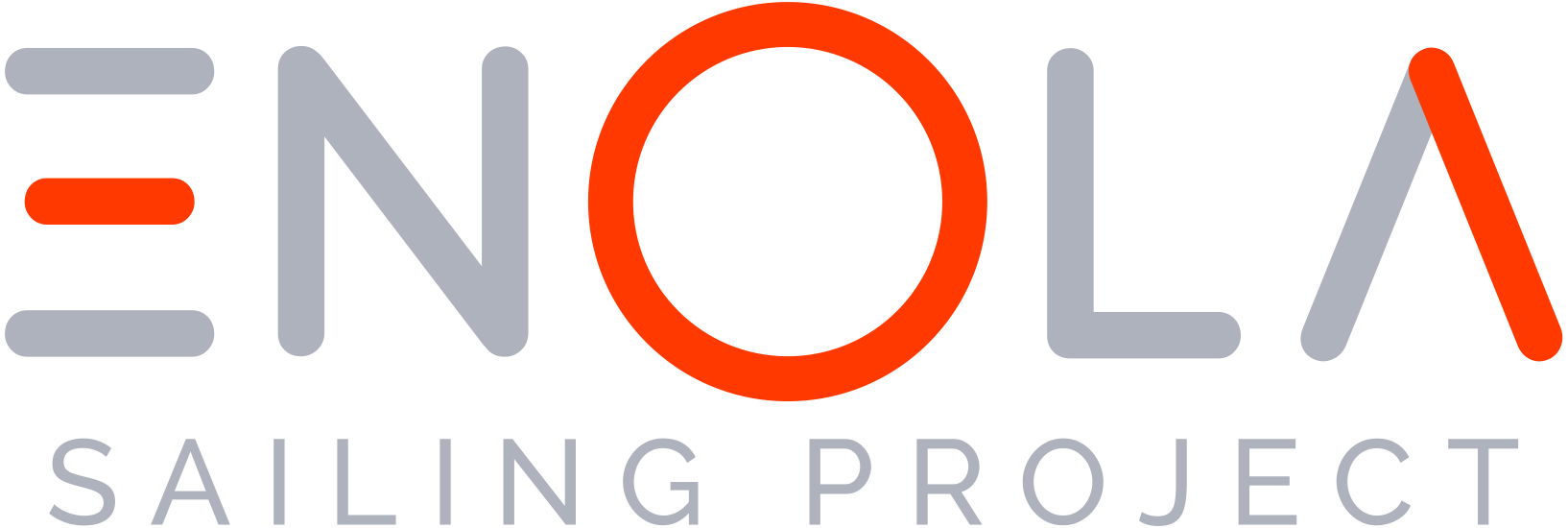We pollute
Yes we do. It is a fact.
Just because we sail, mostly using the wind, doesn’t mean our activities don’t have an impact on the environment. Like with any other human activity. So let’s look at how we can commit to reducing our footprint and our negative impact on the environment, offsetting it as much as possible, supporting science and communities, and continuing to raise awareness of the increasingly poor health of the earth and its oceans.
Polluting
How and why
We don’t have all the answers and are probably missing some elements, but here’s a short list of ways in which sailing activities can have a negative impact on the environment and the oceans:
- Diesel fuel consumption
- Painting and antifoul
- Petroleum-based materials
- Lithium batteries
- On board electronics
- Wastewater
- Waste thrown overboard
- Household cleaners
- Toiletries and sunscreen
- Anchoring
- Air travels
Mitigating
What We Are Committed To On Board
Our journey starts with a promise: to adopt sustainable practices and teach our members and the public how to sail cleanly and respectfully.
Diesel:
We need diesel engine and generator but intend to use them minimally, mainly for maneuvering in port, sailing away from hazards and recharging batteries when needed. As part of a 2027 refit, we are replacing the engine with a new, efficient one. New solar panels and a hydrogenerator are also being fitted.
Painting and antifoul:
In 2027, SV Enola will have her white chemical hull paint stripped for a raw aluminium finish. We are choosing the most environmentally friendly antifouling solution.
Petroleum based materials and equipment:
Sails, lines and equipment are often made from crude oil. We are focusing on more environmentally friendly solutions like natural fabrics and recycled materials.
Lithium batteries / on-board electronics:
S/V Enola is getting a new electrical system and electronics to use less power. New lithium batteries will be installed. We know lithium is not eco-friendly. On the other hand, it lets us use less fossil fuels thanks to its storage capacity. Manual winches are kept on board and equipment like TV screens and the Starlink option for watching TV shows are avoided. Conversations and board games are much more fun!
Wastewater:
We have invested in the enteron® mini wastewater treatment plant, which completely purifies all wastewater. This plant also eliminates the need to pump out the tanks in port, further reducing the carbon footprint.
Waste thrown overboard:
Our policy: no cigarette butts, litter, cans, sail ties or other waste overboard. We store our rubbish and dispose of it properly when we return to shore.
Household cleaners:
Avoiding detergents and cleaning products. Lot’s of plastic and full of chemicals. Many so-called ecofriendly products aren’t what they claim. At sea — as at home — we rely on two natural solutions: white vinegar and baking soda. This also helps to keep our sewage plant alive.
Toiletries & sunscreen:
Our crew and members are asked to use natural, ocean-friendly soap and shampoo bars. Baking soda is also an excellent deodorant. Menstrual cups may also be worth considering. As for sun protection, use reef-safe sunscreen. Better for the marine ecosystem and our skins. Brands like Himaya, with reusable packaging, are the way to go.
Anchoring:
Dropping an anchor can be very damaging to what lies beneath the surface, so we try to do it in the best way. We use existing mooring buoys where possible, and anchor on smooth sand. We never anchor in protected or conservation areas and always set the right chain length to avoid dragging.
Air travels:
Many destinations are difficult to reach without air travel. For us and our global members, this is often impossible. We can only prioritise direct flights and offset our carbon footprint through the airline or by donating through organisations such as myclimate.
Did You Know?
This Enola Sailing Project website and our organisation’s cloud-based management tools are hosted by Infomaniak, a Swiss company with strong environmental credentials, powered entirely by 100% renewable energy sources and offsetting its CO2 emissions by 200%.
Acting
Our Plan To Contribute To A Better Planet
In addition to our commitment to improving our daily operations and reducing our negative impact, we want to actively and meaningfully contribute to the global effort to save the oceans and their ecosystems.
We intend to start this process with our first passages, continue it throughout the years and culminate it with the Enola Grand 8 Expedition.
This contribution can be summarised by seven action verbs:
Collaborate:
Collaborate with like-minded organisations on sustainable ocean management and protection. S/V Enola is available to collect data for future analysis.
Observe:
Observe the oceans, identify and map wildlife, localize hotspots of high plastic concentration, and more.
Collect:
Collect data, samples and testimonies for use and analysis by the environmental and scientific communities.
Interact:
Interact and connect with coastal residents and local communities to gather testimonies and more information.
Learn:
Learn best practices, from how to sail more sustainably to how to collect and organize information more effectively.
Educate:
Educate ourselves and our members, hold public conferences, targeted workshops in schools, etc.
Share:
Share data, knowledge and experiences with communities and the public to raise awareness.
Collaborate and Partner
Part of the scientific community or an organisation that could be interested in our collaboration and setting up a partnership? Please contact us — we look forward to collaborating with you for the benefit of our oceans.
Help and Contribute
Any ideas, suggestions or contributions to make regarding this specific page? If so, please share them with us — we’d love to hear about them!
Did You Know?
As you’ve read, COCILES is our motto here. But we’re also thinking about creating a mascot based on a marine vertebrate and giving her that name. What do you think — any cool ideas? ![]()
Stay informed about our environmental projects

